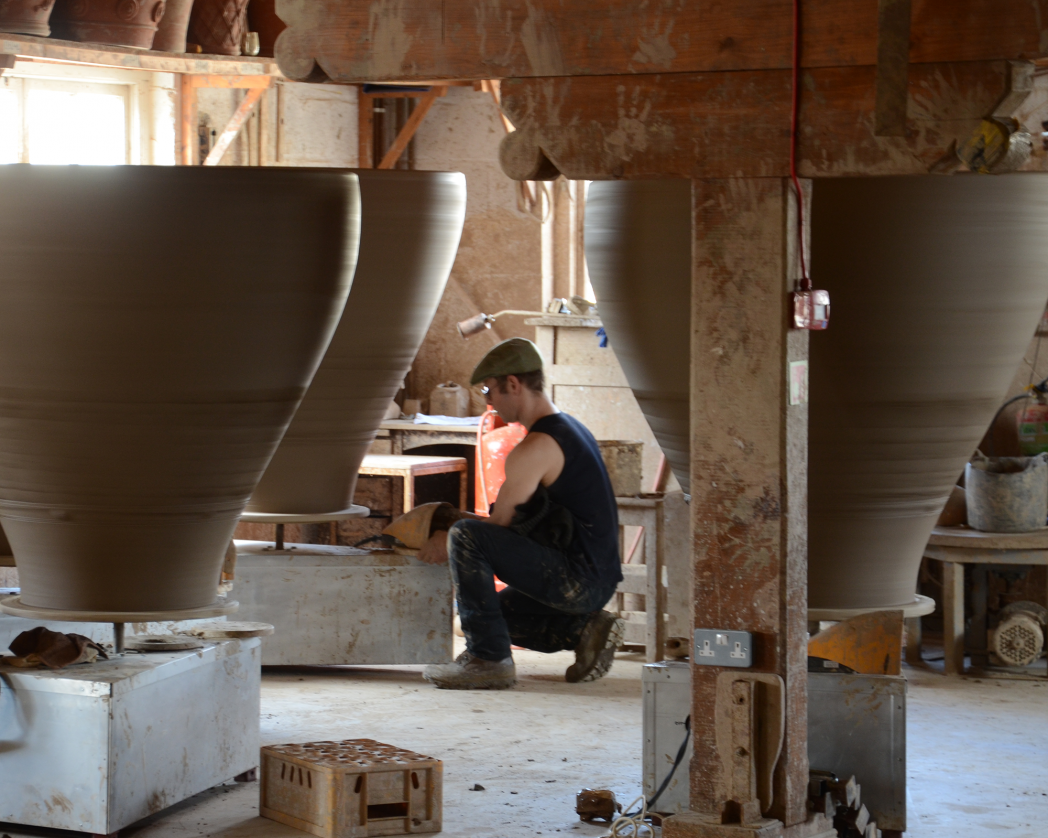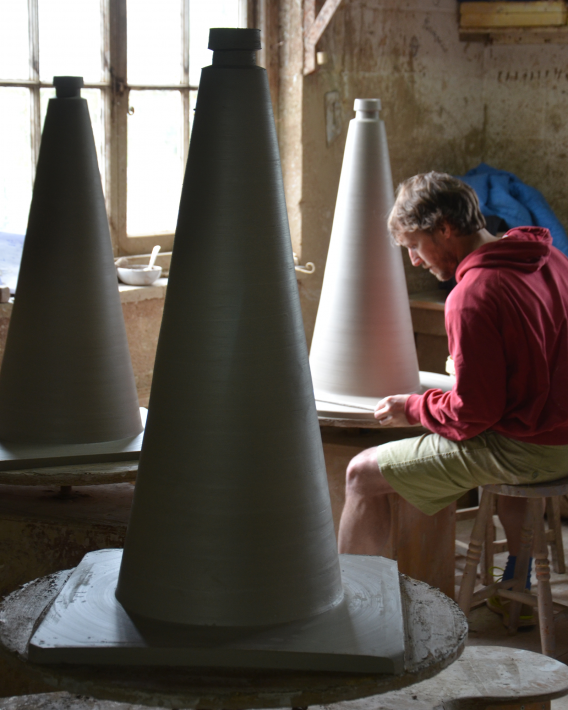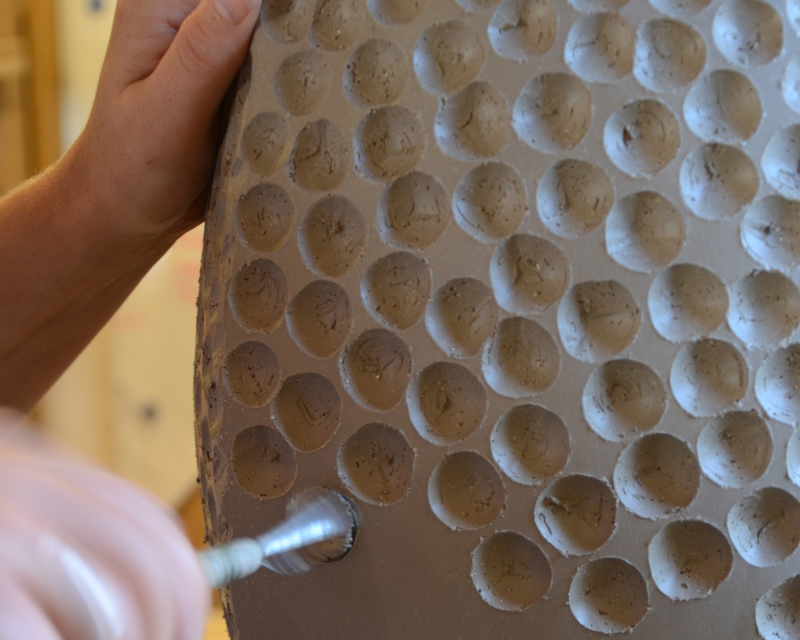Why do we make flowerpots?
Here at Whichford our mission is simple, to keep alive the old ways of working and pass on the skills that have been used for generations before us.
‘A whole tome on flowerpots? Surely the man is…’ But wait! Fifty years ago, an ardent young potter fresh from Cambridge University, I would have been rattled and hastily agreed. The subject was no subject at all. After my apprenticeship at Wrecclesham, I was intrigued to find the bones of a tradition stretching back to the dawn of recorded time, yet surfacing quite recognisable and remarkably unchanged in the present.’
Jim Keeling, The Terracotta Gardener, 1990.
As we get closer to our 50th anniversary, we pay homage to the many generations of potters before us whose skill, methods and work practices we still use today to make our pots. Whichford Pottery was founded in 1976 after Jim had completed an apprenticeship at Wrecclesham Pottery, Farnham, where he had taken over the kickwheel of a potter called Harry who had only just retired aged 83!
At a time when many Country Potteries where failing, Absalom Harris established Wrecclesham Pottery in 1874 with a specialism in flowerpots; suppling enormous quantities of plain pots to nurseries and large estates. The workshop Jim trained in had changed little since those early days, and we like to think Absalom would also feel quite at home here at Whichford.
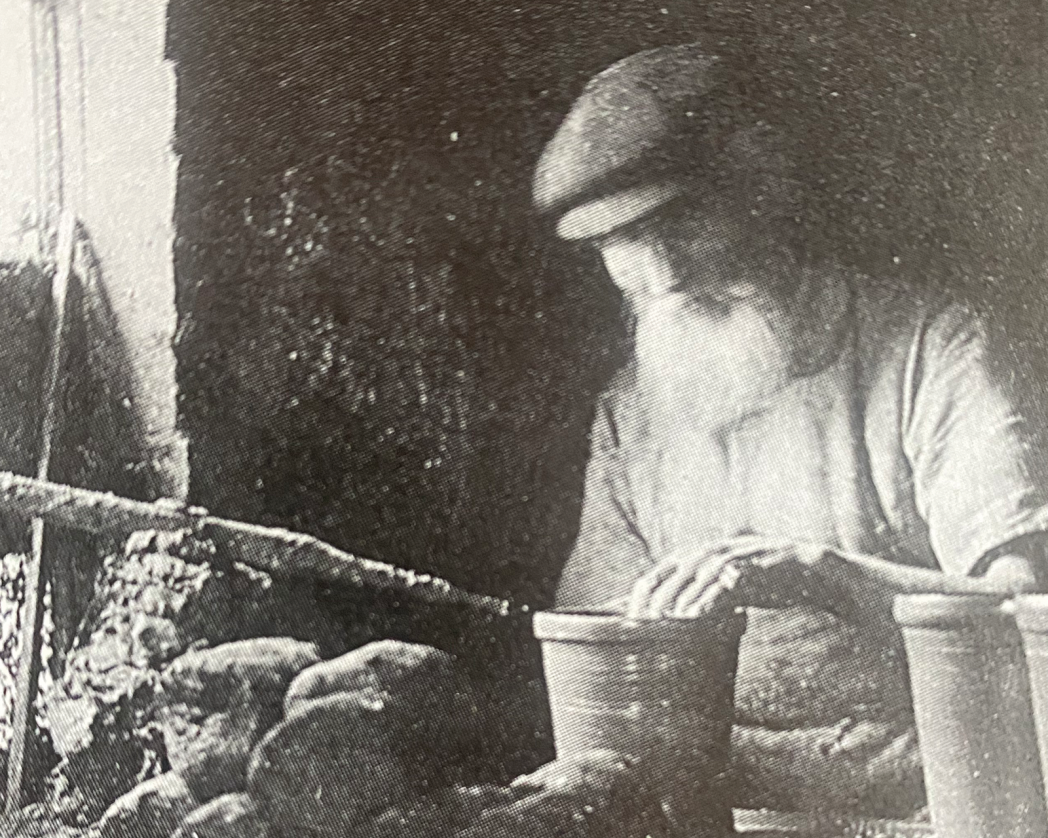
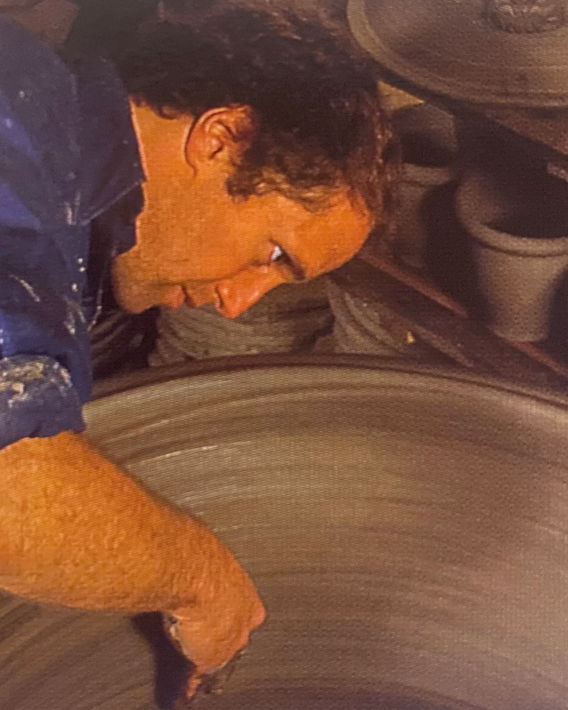
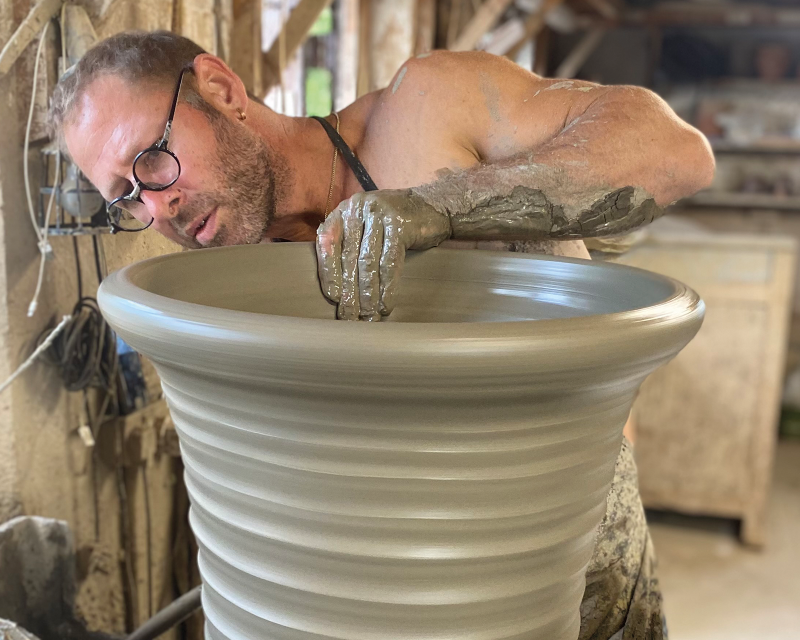
Over the past 50 years Whichford Pottery has grown into a community, an extended family which is held together by a belief that can’t be summarised better than by Ernst F. Schumacher in Small is Beautiful: Economics as if People Mattered:
“If the ideal with regard to work is to get rid of it, every method that ‘reduces the work load’ is a good thing… Here it is not a matter of ordinary specialisation, which mankind has practised from time immemorial, but of dividing up every complete process of production into minute parts, so that the final product can be produced at great speed without anyone having had to contribute more than a totally insignificant and, in most cases, unskilled movement of his limbs.’
The Buddhist point of view takes the function of work to be at least threefold: to give a man a chance to utilise and develop his faculties; to enable him to overcome his egocentredness by joining with other people in a common task; and to bring forth the goods and services needed for a becoming existence… To organise work in such a manner that it becomes meaningless, boring, stultifying, or nerve-racking for the worker would be little short of criminal: it would indicate a greater concern with goods than with people, an evil lack of compassion and a soul-destroying degree of attachment to the most primitive side of this worldly existence. Equally, to strive for leisure as an alternative to work would be considered a complete misunderstanding of one of the basic truths of human existence, namely that work and leisure are complementary parts of the same living process and cannot be separated without destroying the joy of work and the bliss of leisure.” ― Ernst F. Schumacher, 1973.
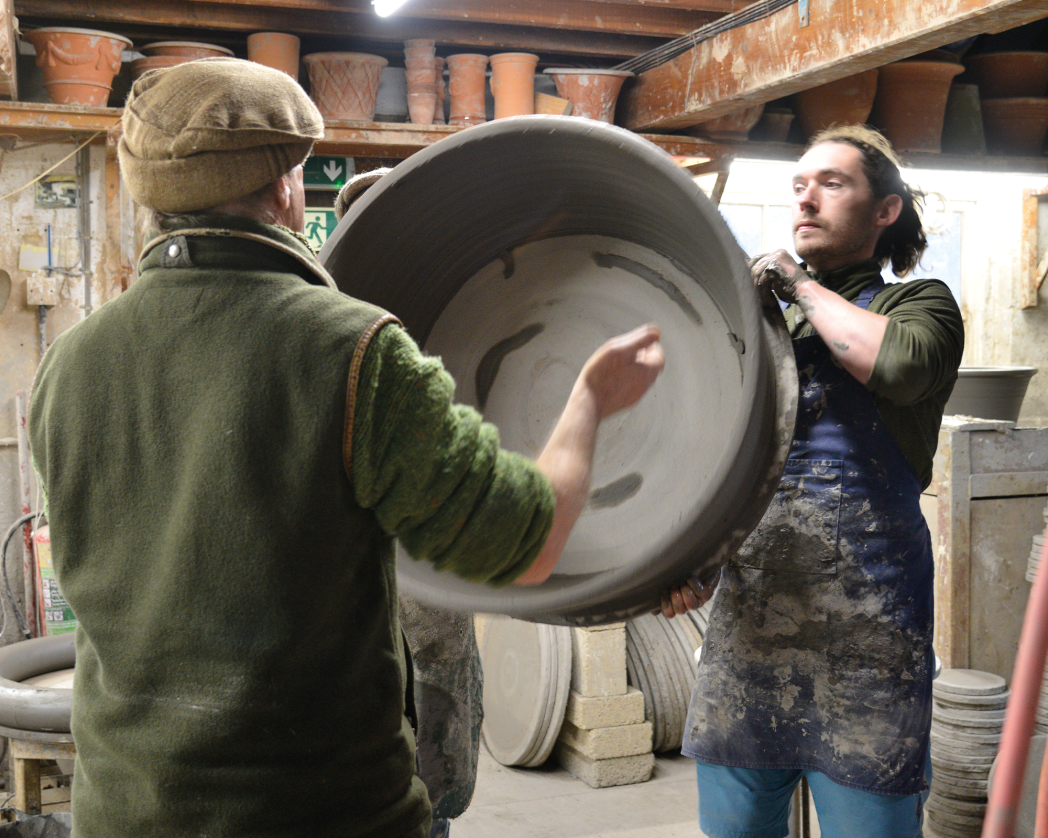


“Have nothing in your house that you do not know to be useful, or believe to be beautiful”- William Morris, 1834
We have an international reputation for design, skill and quality and we believe innovation is a marker of our success so we continually push the boundaries of clay and our clients continue to challenge us.
The ancient skills and ways of working that Jim learnt have proved a viable model on which to build a sustainable future and flowerpots remain at the very heart of the business. As the second generation takes the lead we aim to teach and train more, build wider awareness through a focus on education and honing skills from the traditions of the world to ensure we continue, reinvigorated and redirected for a new time.
